Last year at the Schools NorthEast Annual Summit I was delighted to talk to primary teachers and learn how they had become a high-performing region. Today I had less happy conversation with their secondary colleagues about why they are falling behind at GCSE.
As the chart below shows, the North East has always scored poorly on KS4 progress, and they have now been hit by the grade re-scaling that has equally benefited London.
If you unpack how it is underperforming, you can see that it does well in the Progress 8 open slots, poorly in English and maths, and very poorly in the EBacc slots. This isn’t true in all parts of the North East; it is particularly true in South Tyneside, Redcar and Cleveland, Hartlepool and Darlington.
It is hard to explain how a region can be so successful in the primary phase and yet not in the secondary phase. Headteachers say that economic disadvantage manifests itself in pupil aspirations at secondary schools; others talk about close knit geographically disparate communities that engage closely with their village primary school but lose that engagement when children take coaches to secondary schools further afield.
There are certainly other decisions that cannot be attributed to parents and their communities. One is that the region has always, in recent times, had lower modern foreign language entry rates than other regions, and that the gap in entries between the North East and the rest of England has widened (unlike in science and humanities where it has closed).
Like schools elsewhere looking on as language entries fall, the North East now needs to have a conversation about whether language study to 16 should form part of the standard curriculum for students. It would seem that the odds are stacked against languages at present: the decision by Ofqual not to deal with the grading difficulty means that it is more often a wasted grade in the Progress 8 calculation than is any other subject. And even for schools that would like to deliver the EBacc for all, finding new teachers able to teach Key Stage 4 languages is as big a challenge in the North East as it is anywhere.
Want to stay up-to-date with the latest research from Education Datalab? Sign up to our mailing list to get notifications about new blogposts, or to receive our half-termly newsletter.

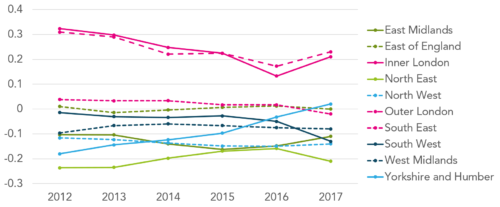
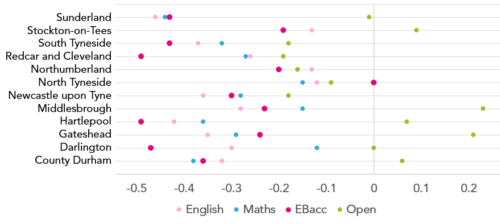
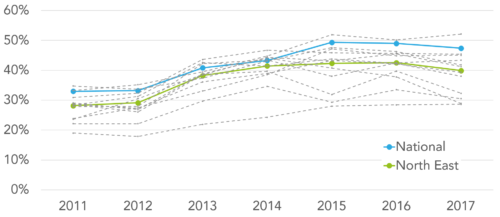

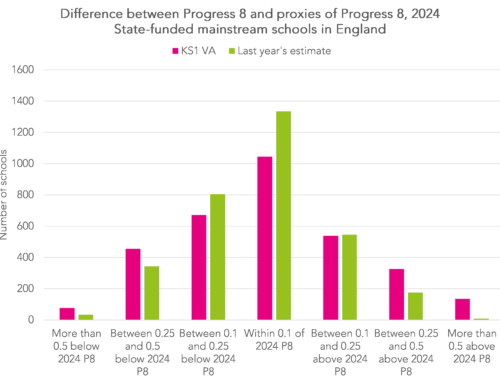
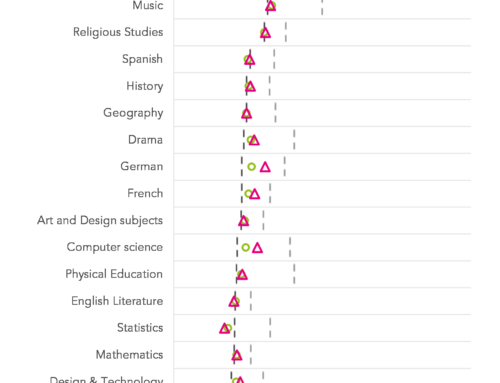
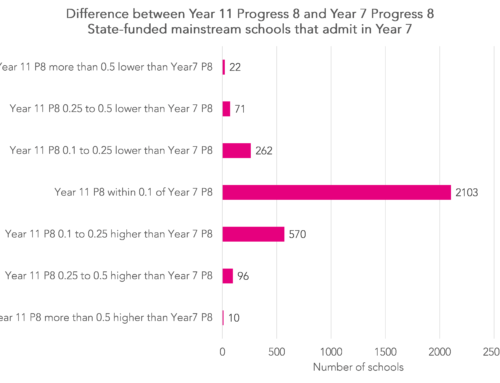
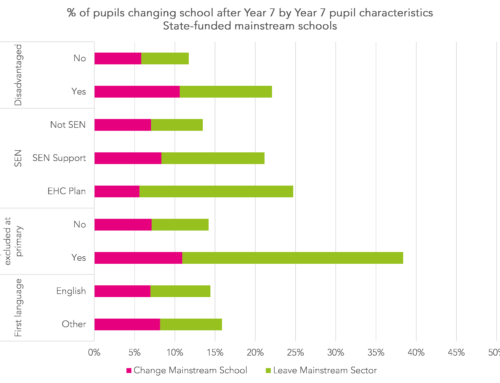
Is it possible to look at the impact of progress 8 scores on non-selective schools in selective authority?
Yes. We took a quick look at this last year in this post: https://ffteducationdatalab.org.uk/2016/09/progress-8-is-too-favourable-to-grammar-schools-and-understates-secondary-modern-achievement/
I’m not sure it’s possible to unpack P8 enough to get close to a “performance” picture. Ignoring Open (game-able) and EBacc (political) and accounting for context might help…..could we see LA level CVA for English Lang and Lit separately and maths?